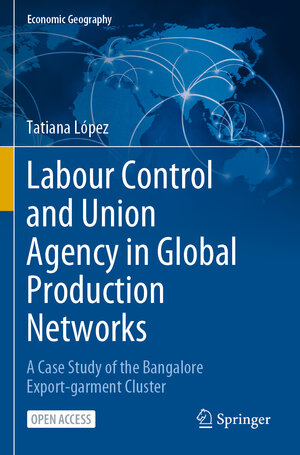
Labour Control and Union Agency in Global Production Networks
A Case Study of the Bangalore Export-garment Cluster
von Tatiana LópezThis book puts Indian garment workers and their organisations at the centre of the analysis. Taking the Bangalore export-garment cluster as a case study, the book explores the conditions that enable but also constrain the capacities of garment workers’ unions to build collective power vis-à-vis employers and thereby improve their conditions. Drawing on theoretical concepts from labour geography, relational economic geography, and Global Production Network (GPN) analysis, the book highlights, on the one hand, how the complex labour control regime in the Bangalore export-garment cluster poses manifold challenges and constraints for workers’ and unions’ collective agency. On the other hand, the book illustrates the various networked agency strategies that local garment unions in Bangalore have developed over the years to overcome these constraints by tapping into coalitional power resources from worker, consumer and labour rights organisations in the Global North.
This book is therefore highly relevant for economic geographers and other scholars interested in dynamics of labour and development in GPNs as well as for unionists and labour rights activists committed to improving working conditions in the global garment industry.
This is an open access book.



